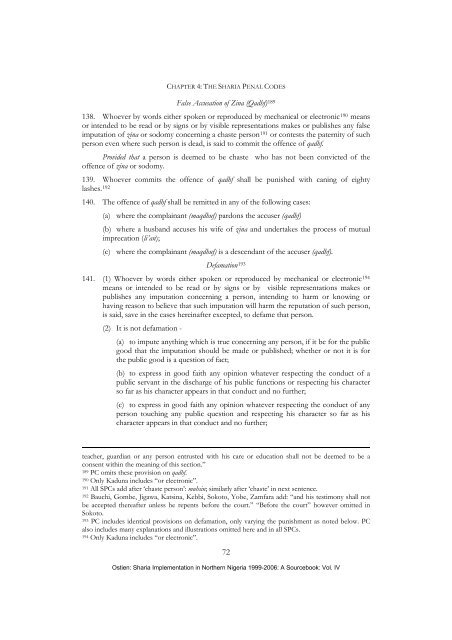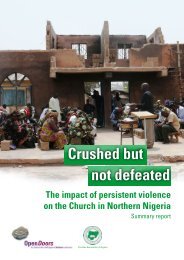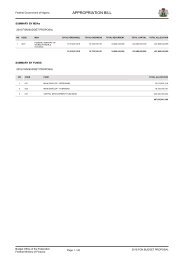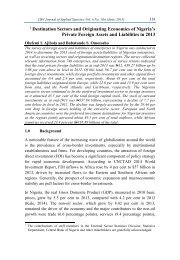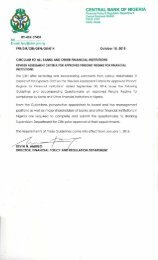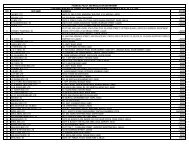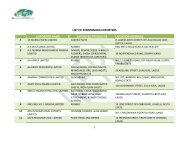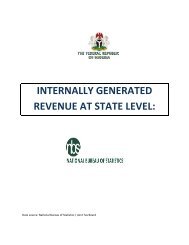vol_4_4_chapter_4_part_III
vol_4_4_chapter_4_part_III
vol_4_4_chapter_4_part_III
Create successful ePaper yourself
Turn your PDF publications into a flip-book with our unique Google optimized e-Paper software.
CHAPTER 4: THE SHARIA PENAL CODES<br />
False Accusation of Zina (Qadhf) 189<br />
138. Whoever by words either spoken or reproduced by mechanical or electronic 190 means<br />
or intended to be read or by signs or by visible representations makes or publishes any false<br />
imputation of zina or sodomy concerning a chaste person 191 or contests the paternity of such<br />
person even where such person is dead, is said to commit the offence of qadhf.<br />
Provided that a person is deemed to be chaste who has not been convicted of the<br />
offence of zina or sodomy.<br />
139. Whoever commits the offence of qadhf shall be punished with caning of eighty<br />
lashes. 192<br />
140. The offence of qadhf shall be remitted in any of the following cases:<br />
(a) where the complainant (maqdhuf) pardons the accuser (qadhf)<br />
(b) where a husband accuses his wife of zina and undertakes the process of mutual<br />
imprecation (li’an);<br />
(c) where the complainant (maqdhuf) is a descendant of the accuser (qadhf).<br />
Defamation 193<br />
141. (1) Whoever by words either spoken or reproduced by mechanical or electronic 194<br />
means or intended to be read or by signs or by visible representations makes or<br />
publishes any imputation concerning a person, intending to harm or knowing or<br />
having reason to believe that such imputation will harm the reputation of such person,<br />
is said, save in the cases hereinafter excepted, to defame that person.<br />
(2) It is not defamation -<br />
(a) to impute anything which is true concerning any person, if it be for the public<br />
good that the imputation should be made or published; whether or not it is for<br />
the public good is a question of fact;<br />
(b) to express in good faith any opinion whatever respecting the conduct of a<br />
public servant in the discharge of his public functions or respecting his character<br />
so far as his character appears in that conduct and no further;<br />
(c) to express in good faith any opinion whatever respecting the conduct of any<br />
person touching any public question and respecting his character so far as his<br />
character appears in that conduct and no further;<br />
teacher, guardian or any person entrusted with his care or education shall not be deemed to be a<br />
consent within the meaning of this section.”<br />
189 PC omits these provision on qadhf.<br />
190 Only Kaduna includes “or electronic”.<br />
191 All SPCs add after ‘chaste person’: muhsin; similarly after ‘chaste’ in next sentence.<br />
192 Bauchi, Gombe, Jigawa, Katsina, Kebbi, Sokoto, Yobe, Zamfara add: “and his testimony shall not<br />
be accepted thereafter unless he repents before the court.” “Before the court” however omitted in<br />
Sokoto.<br />
193 PC includes identical provisions on defamation, only varying the punishment as noted below. PC<br />
also includes many explanations and illustrations omitted here and in all SPCs.<br />
194 Only Kaduna includes “or electronic”.<br />
72


